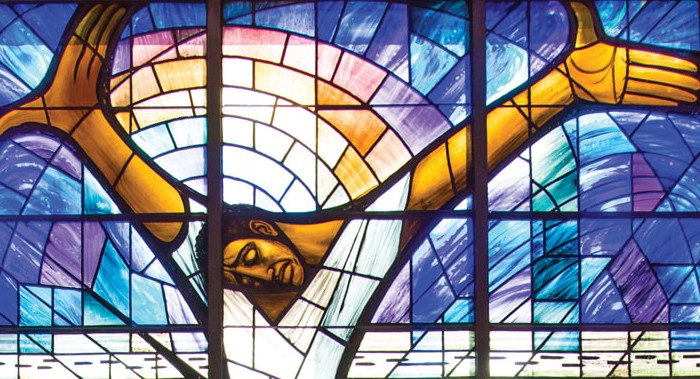I am a Baptist theologian, and “professor of historical theology” is my specific job title. It is therefore of no little interest to me that a political controversy moving into the national spotlight involves a candidate who is a fellow Baptist theologian and his ties to one of the most important movements of recent theological history.
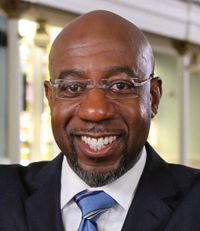
Raphael Warnock
Raphael Warnock, senior pastor of Ebenezer Baptist Church in Atlanta who earned a Ph.D. in systematic theology from Union Theological Seminary in New York City, is the Democratic candidate for the Georgia U.S. Senate seat currently held by incumbent appointee Kelly Loeffler. Loeffler is Warnock’s Republican opponent in a January runoff election after Warnock received the most votes in the multi-candidate special election in November that included Warnock, Loeffler, Republican challenger Doug Collins and others.
With this race and the other Georgia U.S. Senate runoff election between Republican David Perdue and Democrat Jon Ossoff now receiving the full national attention of both major parties, attacks on candidates have predictably intensified, especially against Warnock.
Theology as focus of political attacks
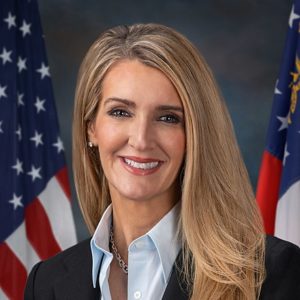
Kelly Loeffler
Theology is at the center of these attacks. Loeffler’s campaign has launched a guilt-by-association effort to tie Warnock to persons, events and movements that supposedly out him as a “dangerous” “leftist” “Marxist” “radical” (all terms applied to Warnock in Loeffler’s tweets).
One attack calls attention to the fact that Warnock was youth minister at New York City’s Abyssinian Baptist Church as a seminary student when the church hosted Fidel Castro for an evening speaking event while Castro was in town to speak at the United Nations in 1995. Warnock has responded that he was not involved in planning the event and did not meet Castro.
Abyssinian Baptist Church is the congregation that was instrumental in the conversion of Dietrich Bonhoeffer to committed Christian discipleship during a year of study at Union Theological Seminary, 1930-31, when Adam Clayton Powell Sr. was pastor. The church has a well-established tradition of giving people whose voices were not welcomed by others the freedom to speak at Abyssinian, and that applied to Castro, whatever one may think of what his voice represented. (Speaking at Abyssinian Baptist does not equal endorsement by Abyssinian Baptist or its ministerial staff.)
Critique of Israel
Another line of attack highlights a portion of a 2018 sermon by Warnock that included a statement critical of Israel’s treatment of Palestinians. The charge against Warnock is anti-Semitism. But this critique of Israel is widely shared by Christian ethicists and by Palestinian Christians who experience this treatment by Israel. It is no more anti-Semitic than were the prophet Amos’s denunciations of the injustices committed by ancient Judah and Israel.
Speaking of Amos: Much is being made of Warnock’s support for Jeremiah Wright after video of one of his post-9/11 sermons became an issue for then-candidate Barack Obama during his 2008 campaign (the Obama family had been members of Wright’s Trinity United Church of Christ in Chicago). On Fox News that year, Warnock said, ““We celebrate Rev. Wright in the same way that we celebrate the truth-telling tradition of the Black church, which when preachers tell the truth, very often it makes people uncomfortable.”
While Wright’s rhetoric had been shocking to people accustomed to uncritical American patriotism, it was very much a contemporary updating of the rhetoric of Amos, applied to the United States.
About James Cone
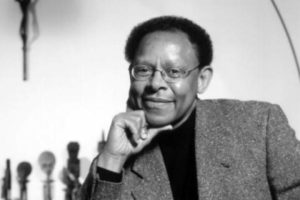
James Cone
The most unsparing attack on Warnock is based on a superficial reading of selected statements by Warnock’s doctoral mentor James H. Cone, the “father of Black Liberation Theology” who died in 2018. Cone’s classic 1970 book, Black Liberation Theology, provided both the name and theological framework for one of the most significant theological movements of the 20th and 21st centuries.
Black Liberation Theology is in continuity with and extends the earlier work of Howard Thurman and Martin Luther King Jr. While Cone coined the term “liberation theology” in connection with its African American expression, it belongs to a larger complex of theological movements that now embrace the label, including Latin American Liberation Theology, Feminist Theology, “Womanist” Theology done from the particular perspective of Black women, and a wide variety of socially located theologies in Asia and Africa.
These diverse theologies of liberation share in common three emphases evident not only in the work of Cone but also in its appropriation by Wright and Warnock: (1) God’s solidarity with the victims of oppression and desire for their liberation; (2) the responsibility of the church to join God in God’s mission of solidarity and liberation; and (3) the task of theology as critical reflection on the faith and practice of Christian community, inquiring whether or not its faith and practice has facilitated this mission of solidarity and liberation.
While I cannot speak for my students, I imagine that many of them would regard Black Liberation Theology as very much within the theological mainstream as a result of their coursework.
Wright contributed an epilogue chapter to the second edition of James H. Evans’s We Have Been Believers: An African American Systematic Theology, a required text in our introductory Christian theology courses. Next semester my students will read Warnock’s book The Divided Mind of the Black Church: Theology, Piety, and Public Witness in my Baptist and Free Church Theology course. If I had a dollar for every paper my students have chosen to write on the theology of James Cone over the years, I’d have at least enough money to treat a full class of students to coffee and pastries during our mid-period break.
A superficial reading
It’s evident to me that Warnock’s attackers who try to make some of Cone’s more incendiary statements stick to Warnock have done only a very superficial and selective reading of Cone. When Cone writes about “Satanic whiteness,” he is denouncing the notion of white normativity, which stems from that which is rightly called demonic. When Cone advocates “the destruction of everything white,” he is urging Black theology to take as its task the purging of this idolatrous notion of white normativity from the theology of Black people of faith. When Cone contends that God is Black, he is affirming God’s solidarity with the oppressed rather than the oppressor. And when Cone insists that those who want to join God in God’s solidarity with blackness must lose their white identity, he is calling whites to abandon this notion of white normativity and relinquish attachment to its privileges.
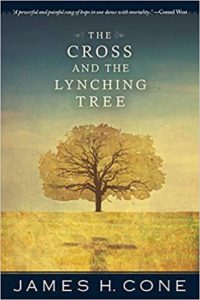 But Cone cannot be said to be “anti-white.” His Black Liberation Theology is liberative in and of itself for those who are white and therefore are participants in one way or another in the structures of racial oppression, for liberation theology is concerned not only with the liberation of the oppressed but also of the oppressor. The oppressor, too, is oppressed by social and spiritual forces that ensnare the oppressor in systems of oppression. A conversion that leads to the oppressor sharing in God’s liberation of the oppressed is liberation for the oppressor.
But Cone cannot be said to be “anti-white.” His Black Liberation Theology is liberative in and of itself for those who are white and therefore are participants in one way or another in the structures of racial oppression, for liberation theology is concerned not only with the liberation of the oppressed but also of the oppressor. The oppressor, too, is oppressed by social and spiritual forces that ensnare the oppressor in systems of oppression. A conversion that leads to the oppressor sharing in God’s liberation of the oppressed is liberation for the oppressor.
I think Cone is right about these things. But anyone whose eyebrows are raised by the out-of-context words from Cone that will likely become even more widely known between now and January should read Cone himself rather than his critics’ characterizations or my explanations. For readers of Baptist News Global who have never read Cone, I recommend his 2011 book, The Cross and the Lynching Tree, as an entrée to his thought. In my opinion, it’s the single most significant book ever written by an American theologian.
Black Liberation Theology is once again being demonized for political purposes. But if its demonization can be seized as a teachable moment that leads American Christians to learn more about it, Black Liberation Theology may yet be the very thing that liberates white American Christianity from its bondage.
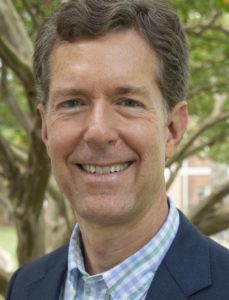
Steven R. Harmon serves as professor of historical theology at Gardner-Webb University School of Divinity in Boiling Springs, N.C. He is author of Baptist Identity and the Ecumenical Future and co-editor with Amy L. Chilton of Sources of Light: Resources for Baptist Churches Practicing Theology.

